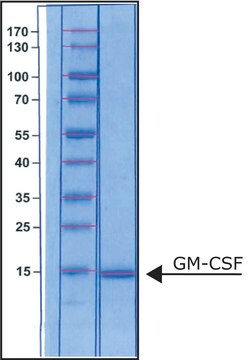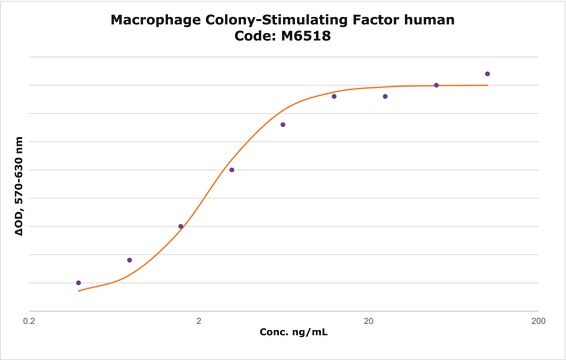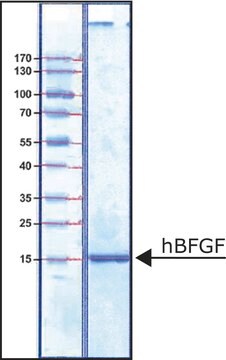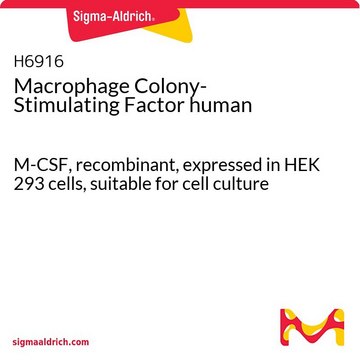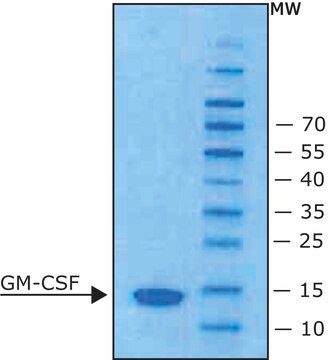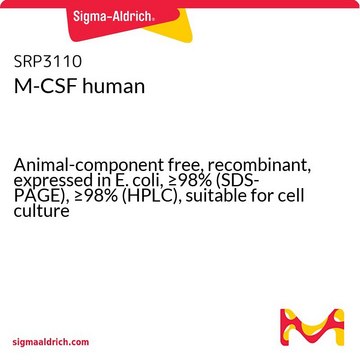Kluczowe dokumenty
H5666
Granulocyte-Macrophage Colony-Stimulating Factor human
HumanKine®, ≥95% (SDS-PAGE), recombinant, expressed in HEK 293 cells, lyophilized powder, suitable for cell culture
Synonim(y):
GM-CSF human
About This Item
Polecane produkty
Nazwa produktu
Granulocyte-Macrophage Colony-Stimulating Factor human, GM-CSF, recombinant, expressed in HEK 293 cells, HumanKine®, suitable for cell culture
pochodzenie biologiczne
human
Poziom jakości
rekombinowane
expressed in HEK 293 cells
Próba
≥95% (SDS-PAGE)
Formularz
lyophilized powder
siła działania
≤5 ng/mL EC50
jakość
endotoxin tested
masa cząsteczkowa
dimer 15-36 kDa (glycosylated)
opakowanie
pkg of 5X10 μg
pkg of 10 μg
warunki przechowywania
avoid repeated freeze/thaw cycles
metody
cell culture | mammalian: suitable
zanieczyszczenia
≤1 EU/mg
numer dostępu UniProt
temp. przechowywania
−20°C
informacje o genach
human ... CSF2(1437)
Szukasz podobnych produktów? Odwiedź Przewodnik dotyczący porównywania produktów
Opis ogólny
Zastosowanie
Działania biochem./fizjol.
Przestroga
Postać fizyczna
Uwaga dotycząca przygotowania
Komentarz do analizy
Informacje prawne
Kod klasy składowania
11 - Combustible Solids
Klasa zagrożenia wodnego (WGK)
WGK 3
Temperatura zapłonu (°F)
Not applicable
Temperatura zapłonu (°C)
Not applicable
Wybierz jedną z najnowszych wersji:
Masz już ten produkt?
Dokumenty związane z niedawno zakupionymi produktami zostały zamieszczone w Bibliotece dokumentów.
Klienci oglądali również te produkty
Produkty
Read article on hematopoietic cytokines and hematopoiesis
Wymieniono cytokiny, których głównym działaniem wydaje się być stymulacja lub regulacja komórek krwiotwórczych, w tym GM-CSF, G-CSF, M-CSF, interleukiny, EPO i TPO.
Nasz zespół naukowców ma doświadczenie we wszystkich obszarach badań, w tym w naukach przyrodniczych, materiałoznawstwie, syntezie chemicznej, chromatografii, analityce i wielu innych dziedzinach.
Skontaktuj się z zespołem ds. pomocy technicznej